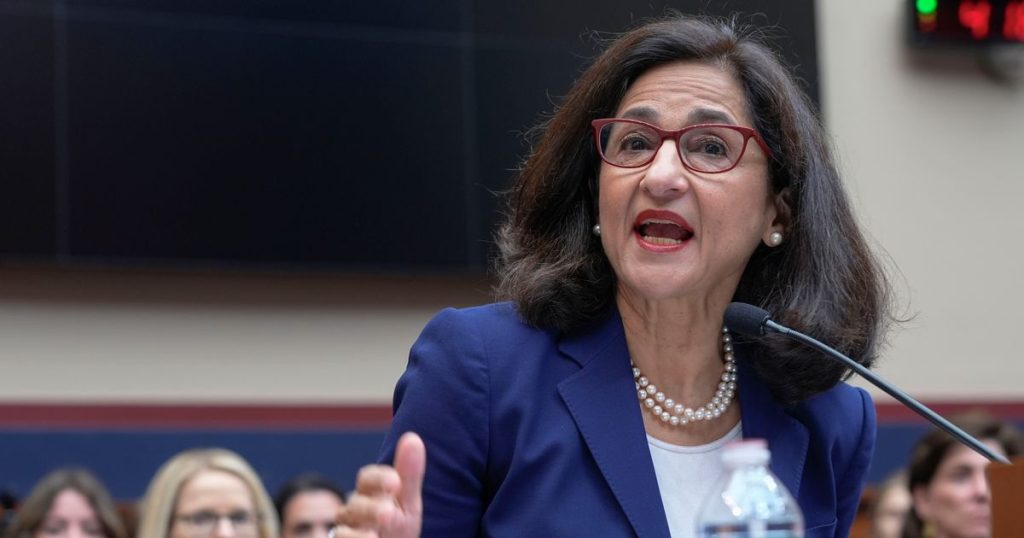Minouche Shafik, the first woman president of Columbia University, has resigned from her position effective immediately. In a message to the university community, Shafik cited the toll of recent protests both on campus and globally as a factor in her decision to step down. She expressed her belief that her departure at this time would benefit Columbia in navigating the challenges ahead. Shafik had previously served as president of the London School of Economics and held positions at the World Bank, the United Kingdom’s Department for International Development, the International Monetary Fund, and the Bank of England. She received her master’s degree from the London School of Economics and her doctorate from Oxford University.
Jonathan Lavine, chair of Columbia’s Board of Trustees, praised Shafik’s leadership qualities and her understanding of both academia and the wider world when she was appointed president last year. He noted her confidence in the role that higher education institutions can play in addressing complex global issues. Shafik’s resignation comes amid a wave of new appointments of women to top positions at Ivy League schools. Her time at Columbia was marked by significant challenges, including protests and other disruptions on campus. By stepping down, she aims to allow the university to move forward successfully in the face of these obstacles.
Shafik’s resignation as president of Columbia University signifies the end of a tenure that made history as she became the first woman to hold the position. During her time as president, Shafik faced numerous challenges, including protests and unrest on campus, which ultimately contributed to her decision to resign. Her background includes leadership roles at prestigious institutions such as the London School of Economics, the World Bank, the International Monetary Fund, and the Bank of England. Shafik’s educational credentials include a master’s degree from the London School of Economics and a doctorate from Oxford University.
The resignation of Minouche Shafik as president of Columbia University highlights the toll that recent global events have taken on leaders in academia. Shafik cited the impact of protests on campus and around the world as a significant factor in her decision to step down. Her departure comes at a time when women are increasingly being appointed to top positions at Ivy League institutions. Shafik’s leadership was praised by the chair of Columbia’s Board of Trustees, who emphasized her understanding of complex global issues and her confidence in the ability of higher education institutions to address them effectively.
As Minouche Shafik resigns from her position as president of Columbia University, the institution faces the challenge of finding a new leader to guide them through uncertain times. Shafik’s decision to step down comes after reflecting on the toll that recent events have taken on her and her family. Her departure marks the end of a tenure that saw her become the first woman to hold the position of president at Columbia University. Shafik’s background in leadership roles at prestigious institutions and her educational credentials have contributed to her success in academia and beyond.
The resignation of Minouche Shafik as president of Columbia University underscores the impact of recent protests and global unrest on academic leaders. Shafik’s departure comes as a wave of new appointments of women to top positions at Ivy League institutions marks a shift in leadership in academia. Her decision to step down, effective immediately, reflects her belief that it is in the best interest of Columbia to navigate the challenges ahead with new leadership. Shafik’s legacy as the first woman president of Columbia University will be remembered as a period marked by significant challenges, reflective of the broader societal upheavals of the time.


